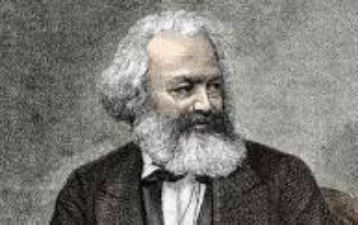But my children do.
Actually, I think I am currently, to borrow a phrase from Alexander Cockburn, more accurately described as Marx-ish rather than Marxist.
There was a time, I confess, when I adopted a more strictly reductionist point of view; when I really did believe that “it is not the consciousness of man that determines his existence; but, rather, his social existence that determines his being”.
I was not alone is taking this literally and as a single sentence out of context. And we therefore presented an easy target. It is not difficult to argue against, as did Russell and Popper amongst others, that class interest, greed and hidden motives are the sole driving forces of history. This is vulgar Marxism – simple, and simplistic.
Marx was less obvious, subtler and more nuanced than this. (Forgive me if I read as if I am describing a modern Australian Shiraz.) And it is the subtleties and nuances of Marx which make him good reading and increasingly relevant today.
He wasn’t merely an economist. In fact, he wasn’t strictly an economist at all. Although, of course, he was sufficiently prescient to predict that capitalism naturally progresses towards monopoly and thus to globalisation, and also to predict that the profits taken by those who control the means of production (we call them company directors today) would increasingly exceed the wages of those who create the wealth (we call them employees today).
This is why one occasionally reads that a hedge fund manager in the City or New York has paid tribute to and thanked Marx the economist for his insights into the markets. Whether they know it or not, it is to Marx that they owe their analyses and their huge bonuses.
For me, Marx was first and foremost an historical materialist. Or maybe, a materialist historian. And as even Popper said, Marxist historical materialism is “a most valuable suggestion to us to consider things in their relation to their economic background”. Marx, of course, would have gone further. He never made judgements about capitalism ( word, incidentally, he never used); he praised it (political economy) for its enterprise and innovation.
So why is Marxism so denigrated? Why are Marxists portrayed as people “who hate our country”. What’s the problem here?
Well, much of it is the equation of Marxism with communism. Or to be precise, with Leninism and Stalinism. It’s difficult to attribute this to anything other than ignorance or malice. It’s akin to equating our present society with Burke or Hume or Hobbes or Adam Smith or Locke or Mill.
But as we recently seen, this kind of nonsense is standard practice for the likes of Paul Dacre. I speak as someone who, proudly and for many years, has owned a lapel badge which reads “Hated by the Daily Mail”. They don’t know me from Adam Smith, but if they did they would hate Max Smith. Because I have read Marx and think that some – even much – of it is accurate and sensible and helpful in understanding the way in which our society works.
And one of the ways in which Marx is helpful to me in his moral and social analysis. True, he railed against the impotence of morality in his day and criticised those who would seek to mitigate the worst excesses of capitalism with the introduction of charity.
But he also claimed that “although an individual cannot become free in isolation from others, nonetheless it is only individuals who are free”.
There is such a thing as society. It is the nature of that society which determines whether or not each of us is free.
Right now, some are, some aren’t. We are not in this together. Some are, some (many of whom are in the Government and used to be in the Bullingdon) aren’t.
As John Lanchester has reminded us, “If you take the Jubilee Line from Westminster towards the east, male life expectancy goes down a year every stop for the next eight stops”.
I find this unacceptable. I don’t know whether this makes me a Marxist or not. But it’s certainly, as the publishers of the Zinoviev Letter would claim, Marx-ish.
And I am happy to accept this.






 RSS Feed
RSS Feed